This list of the most 140 common adjectives in Moroccan Arabic (with audio) is the perfect place to start expanding your Darija vocabulary, and it’s very useful when it comes to producing descriptive sentences, which are used daily.
Also, note that you can transform these adjectives into feminine easily by adding “a” at the end as we talked about in this post.
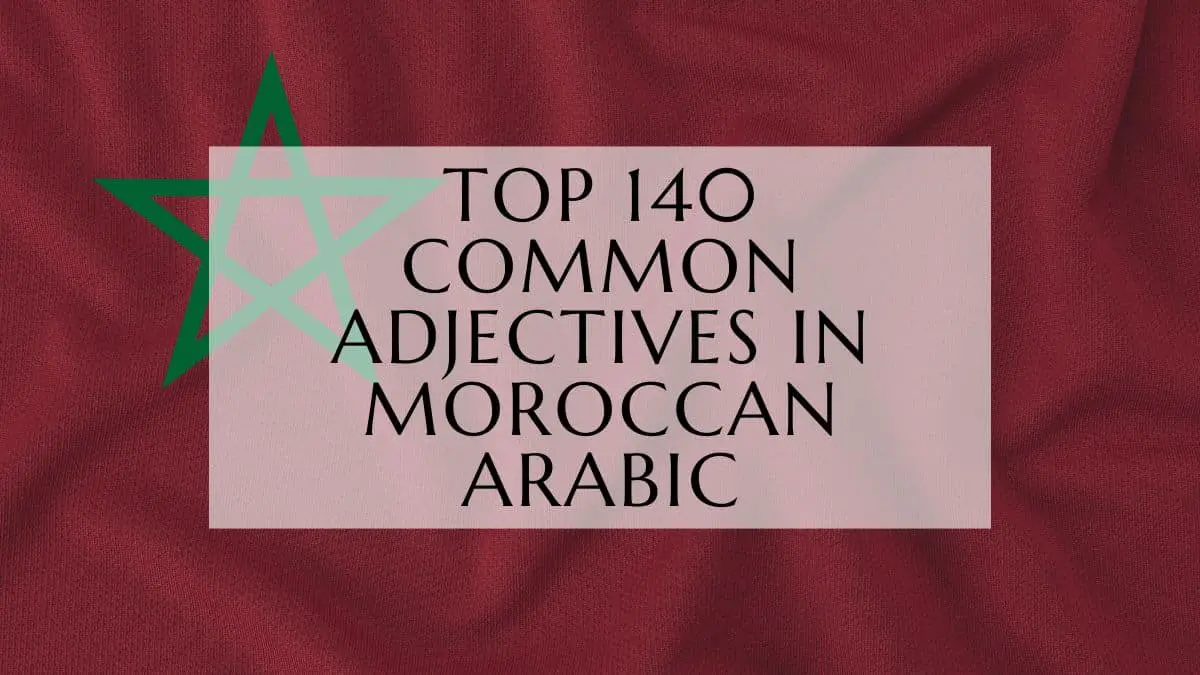
Most Common Adjectives In Moroccan Arabic
| English | Transcribed Moroccan Arabic | Using Arabic Alphabet |
| Able | 9ader | قادر |
| Active | Nashit | نشيط |
| Aged | Sharf | شارف |
| Amazing | Wa3er | واعر |
| Angry | M3asseb | معصب |
| Awake | Fayeq | فايق |
| Bad | Khayb | خايب |
| Beautiful | Zwin | زوين |
| Best | Al a7san | الأحسن |
| Big | Kbir | كبير |
| Black | K7al | كحل |
| Broken | Mharres | مهرس |
| Burnt | Ma7roq | محروق |
| Busy | Meshghul | مشغول |
| Certain | Met2akked | متأكد |
| Cheap | Rkhis | رخيص |
| Chic | Mferkes | مفركس |
| Clean | Nqi | نقي |
| Clear | Wade7 | واضح |
| Clever | Dki | دكي |
| Close | 9rib | قريب |
| Closed | Mesdud | مسدود |
| Cold | Bard | بارد |
| Comfortable | Muri7 | مريح |
| Complex | M3aqqad | مْعْقّدْ |
| Cooked | Tayeb | طايب |
| Crazy | Hbil / Msatti | هبيل/ مسطي |
| Dangerous | Khatir | خطير |
| Dark colored | Ghameq | غامق |
| Dear | 3ziz | عزيز |
| Delicious | Bnin | بنين |
| Different | Mbaddal | مبدل |
| Difficult | S3ib | صعيب |
| Dirty | Mossakh | موسّخ |
| Dizzy | Dayekh | دايخ |
| Dry | Nashef | ناشف |
| Dumb | Ghabi | غبي |
| Early | Bkri | بكري |
| Easy | Sahel | ساهل |
| Economic | 9tisdi | اقتصادي |
| Empty | Khawi | خاوي |
| Envious | Me7sad | محساد |
| Expensive | Ghali | غالي |
| Famous | Meshhor | مشهور |
| Far | B3id | بعيد |
| Fast | Sri3 | سريع |
| Fat | Ghlid | غليض |
| Free | Khawi | خاوي |
| Full | 3amer | عامر |
| Funny | Driyaf | ضريف |
| Generous | Skhi | سخي |
| Good | Mezian | مزيان |
| Great | 3adim | عظيم |
| Greedy | Tamma3 | طماع |
| Happy | Far7an | فرحان |
| Hard | S3ib/9asa7 | صعيب/قاسح |
| Heavy | Tqil | تقيل |
| High | 3ali | عالي |
| Hot | Skhun | سخون |
| Human | Insani | إنساني |
| Important | Mohim | مهم |
| Innocent | Bari2 | بريء |
| International | Dawli | دولي |
| Jealous | Meghyar | مغيار |
| Kind | Drif | ضريف |
| Known | Ma3ruf | معروف |
| Large | 3rid | عريض |
| Last | Akhir | أخير |
| Late | M3ettel | معطل |
| Light | Khfif | خفيف |
| Light colored | Fate7 | فاتح |
| Little | Qlil | قليل |
| Local | Mahalli | محلي |
| Low | Habet | هابط |
| Major | Ra2isi | رئيسي |
| Medium | Matwasset | متوسط |
| Messy | Mrawwen | مرون |
| Military | 3askri | عسكري |
| Mixed | Mkhallat | مخلط |
| Modern | 3asri | عصري |
| Much | Ktir | كتير |
| Mute | Zizon | زيزون |
| Nasty | Qbi7 | قبيح |
| National | Watani | وطني |
| Natural | Tabi3i | طبيعي |
| Naughty | Daser | ضاسر |
| Necessary | Darori | ضروري |
| Nervous | Mqallaq | مقلق |
| New | Jdid | جديد |
| Normal | 3adi | عادي |
| Old | Qdim | قديم |
| Open | Ma7lul | محلول |
| Polite | M2addeb | مؤدب |
| Political | Siyasi | سياسي |
| Popular | Sha3bi | شعبي |
| Possible | Momkin | ممكن |
| Pretty | Zwin | زوين |
| Public | 3umumi | عمومي |
| Real | 7aqiqi | حقيقي |
| Recent | Jdid | جديد |
| Respectable | Mo7taram | محترم |
| Right | S7i7 | صحيح |
| Rough | 7resh | حرش |
| Round | Mdawwar | مدوّر |
| Sad | Mqallaq | مقلّق |
| Salty | Male7 | مالح |
| Sensitive | 7assas | حسّاس |
| Serious | Jiddi | جدي |
| Sharp | Madi | ماضي |
| Short | Qsir | قصير |
| Shy | 7shoumi / 7eshman | حشومي/حشمان |
| Sick | Mrid | مريض |
| Silent | Saket | ساكت |
| similar | B7al | بحال |
| Skillful | 7adg | حادڭ |
| Small | Sghir | صغير |
| Smart | Dki | دكي |
| Social | Jtima3i | اجتماعي |
| Soft | Ratb | رطب |
| Solid | Qasa7 | قاصح |
| Spacious | Wase3 | واسع |
| Special | Matmayaz | متميز |
| Spicy | 7ar | حار |
| Stinky | Khanez | خانز |
| Strong | Wa3er | واعر |
| Stupid | Mkallakh | مكلخ |
| Sweet | 7lu | حلو |
| Tall/Long | Twil | طويل |
| Thin | Rqiq | رقيق |
| Tight | Mdiyyaq | مضيق |
| Tired | 3ayyan | عيان |
| Traditional | Teqlidi | تقليدي |
| Ugly | Qbih | قبيح |
| Warm | Dafi | دافي |
| Weird | Fechkel (neuter) | فشكل |
| Wet | Fazeg | فازڭ |
| White | Byad | بيض |
| Whole | Kamal | كامل |
| Wrong | Ghalet | غالط |
| Young | Shab | شاب |
Note: you can practice what you’ve learned here, and learn how to pronounce each of the words in our Memrise course here, don’t know how to use the platform or sign up? we’ve got you covered in this easy-to-follow tutorial here.
Moroccan Arabic Adjectives Study Guide
Quiz
Instructions: Answer the following questions in 2-3 sentences based on the provided source material.
- What is the primary purpose of learning common adjectives in Moroccan Arabic, according to the blog post?
- How can you transform a masculine adjective into its feminine form in Moroccan Arabic? Provide an example using an adjective from the list.
- What resource does the blog post recommend for practicing pronunciation of the listed adjectives?
- What is the meaning of the adjective “Mferkes” (مفركس) in English?
- Translate the following phrase into English: “Darori Darori” (ضروري ضروري).
- What is the Arabic word for “expensive,” and how is it transliterated?
- How does the blog post categorize the listed adjectives?
- Who is the author of the blog post and the creator of the Lingualid platform?
- What is the meaning of “Lingualid,” and what languages does the platform aim to teach?
- Besides the adjective list, what other types of content does Lingualid offer?
Answer Key
- Learning common adjectives helps expand your Darija vocabulary, particularly for producing descriptive sentences used in daily conversation.
- You add an “a” at the end of the masculine adjective. For example, “kbir” (big) becomes “kbira” (big – feminine).
- The blog post recommends using their Memrise course, which offers audio pronunciation for each adjective.
- “Mferkes” means “chic” in English.
- “Darori Darori” translates to “Necessary Necessary” or “Very Necessary” in English.
- The Arabic word for “expensive” is “غالي” and it is transliterated as “Ghali”.
- The blog post doesn’t explicitly categorize the adjectives. It presents a list of the 140 most common ones in Moroccan Arabic.
- Oualid Cheddadi is the author of the blog post and the creator of Lingualid.
- “Lingualid” combines “língua” (Portuguese for “language”) with the last three letters of Oualid’s name. The platform aims to inspire independent language learners worldwide.
- Besides adjective lists, Lingualid offers blog posts, a language learning duration estimator, and merchandise like t-shirts and mugs.
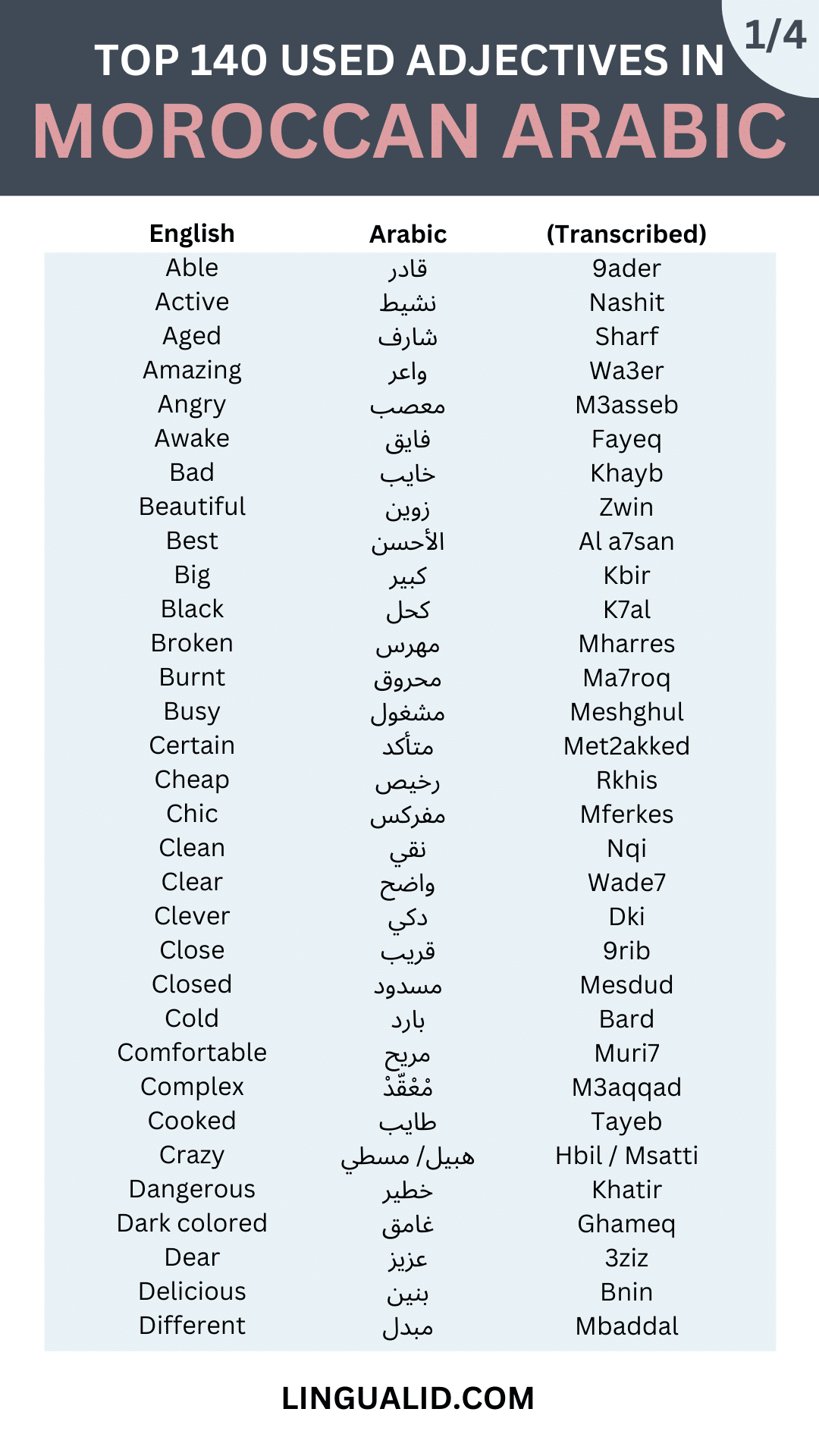
Happy learning!
Oualid Cheddadi is the founder of Lingualid, a platform that inspires independent language learners worldwide, regardless of the language they are learning. The name “Lingualid” is derived from the Portuguese word for “language,” “língua,” and the last three letters of Oualid’s name, “Lid.”

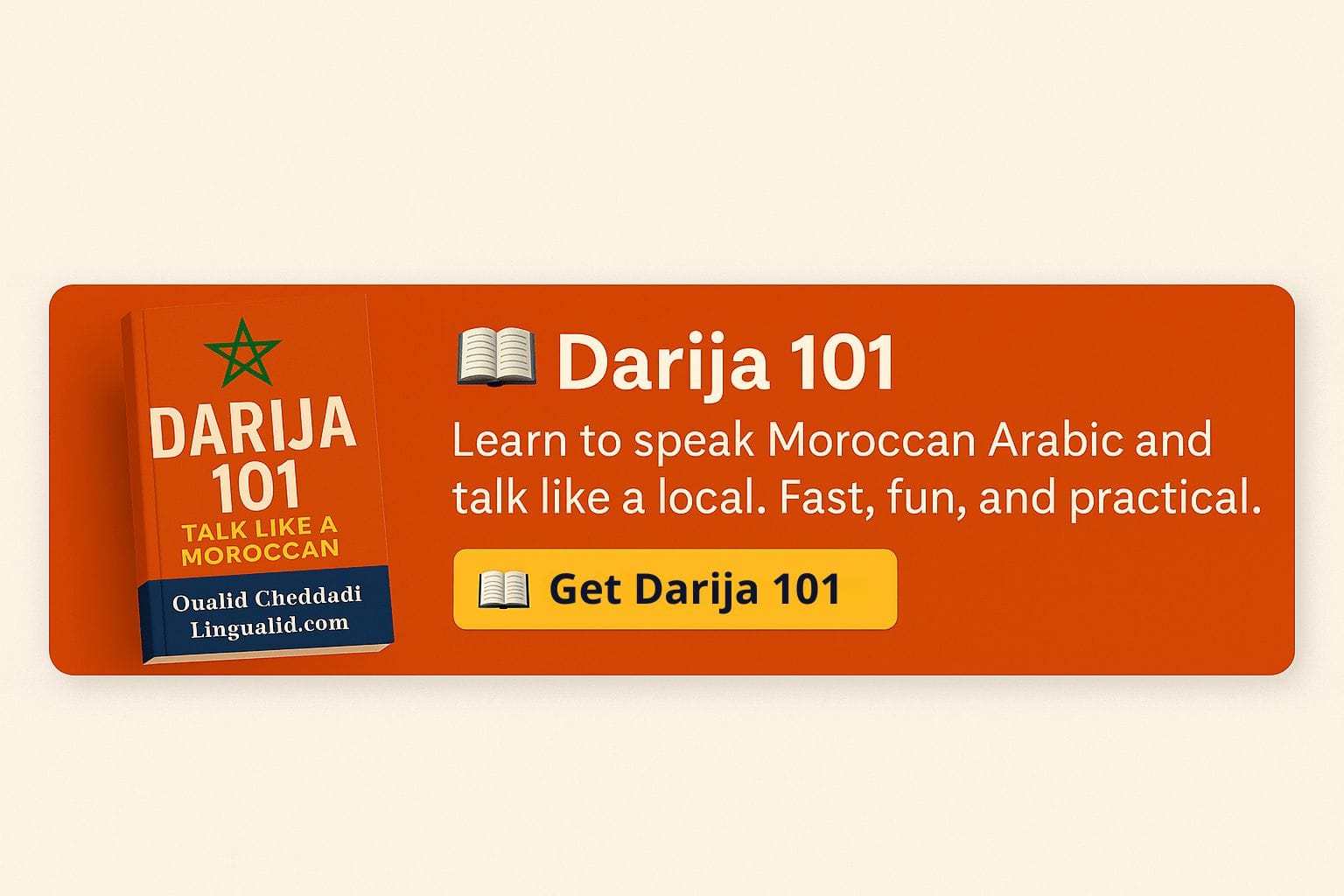
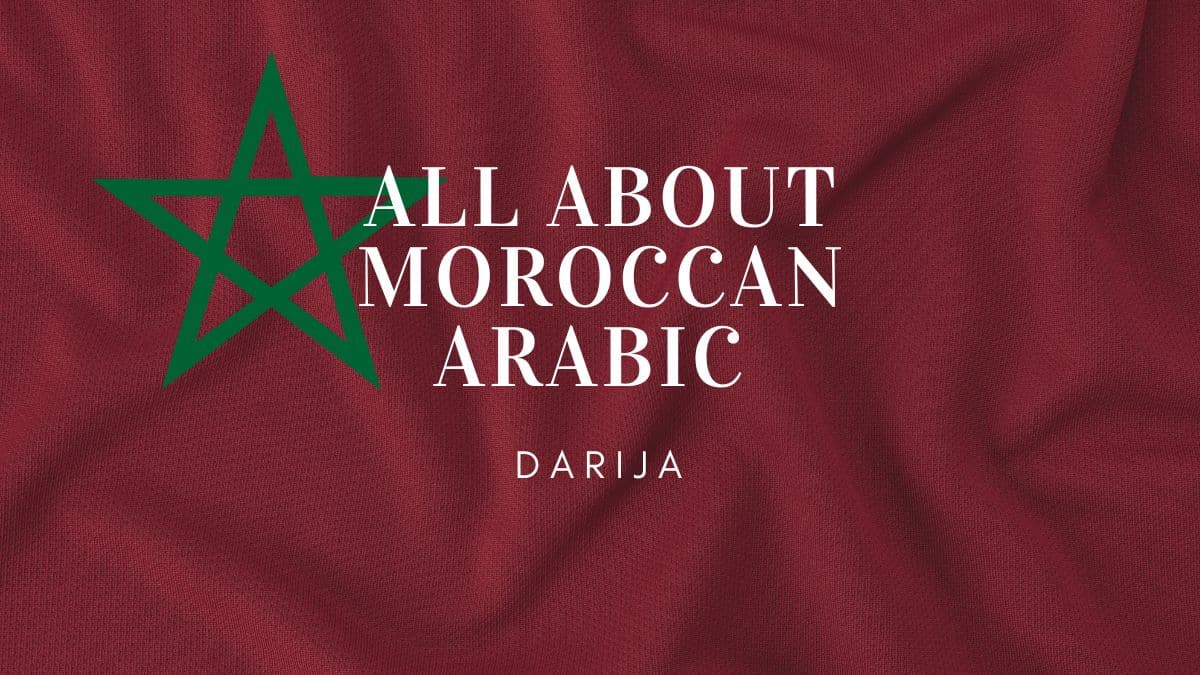
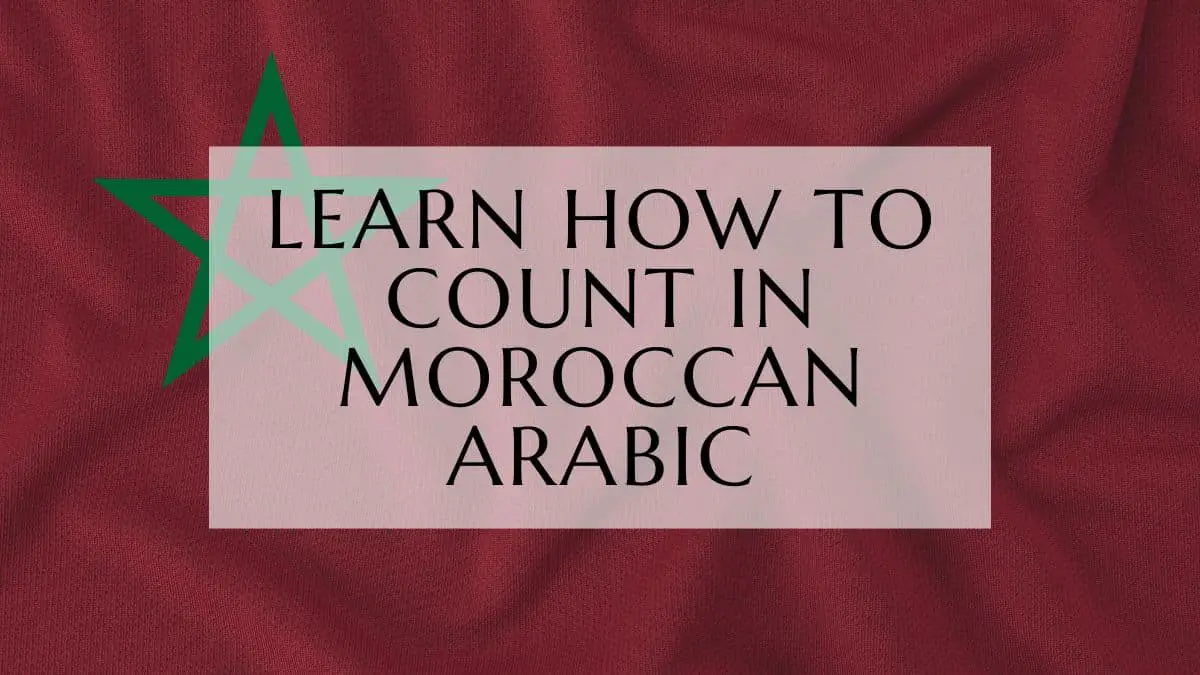
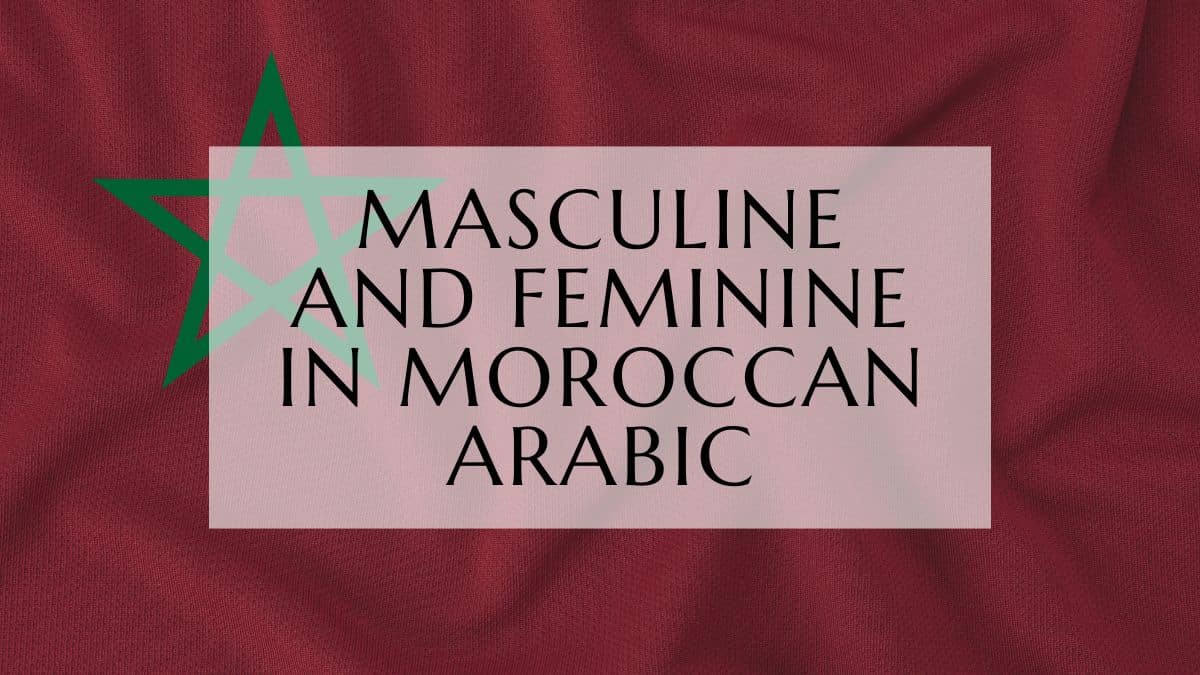
😎 ❤️ this list!